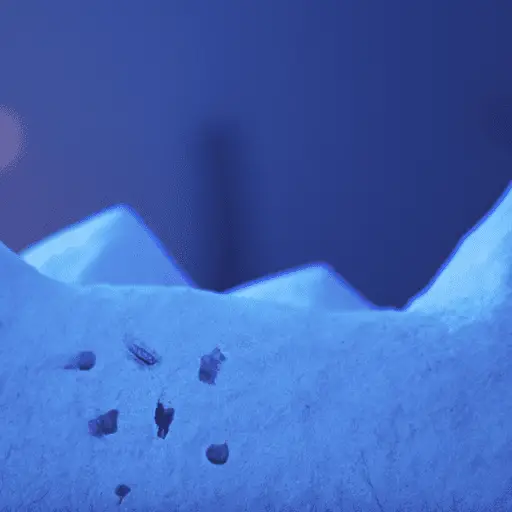Preventing Skin Cancer During Winter
-
Table of Contents
- Preventing Skin Cancer During Winter: A Comprehensive Guide
- Key Takeaways
- Introduction: The Unseen Threat of Winter Sun
- The Persistent Risk of Skin Cancer
- Preventive Measures: Shielding Your Skin
- Early Detection: The Importance of Regular Skin Checks
- FAQ Section: Your Questions Answered
- 1. Can I get sunburned in winter?
- 2. Do I need to wear sunscreen even when it’s cloudy?
- 3. Are tanning beds a safe alternative to sunbathing?
- 4. How often should I have my skin checked for signs of skin cancer?
- 5. What are the early signs of skin cancer?
- Conclusion: Staying Vigilant, Staying Safe
- Review of Key Takeaways
- References
Preventing Skin Cancer During Winter: A Comprehensive Guide

[youtubomatic_search]
Key Takeaways
- Skin cancer risk persists even during winter months.
- UV radiation from the sun and artificial sources can cause skin damage leading to cancer.
- Preventive measures include using sunscreen, wearing protective clothing, and avoiding tanning beds.
- Regular skin checks can help detect early signs of skin cancer.
- Education and awareness about skin cancer prevention are crucial.
Introduction: The Unseen Threat of Winter Sun
While the winter season brings with it a respite from the scorching summer heat, it does not necessarily mean that the risk of skin cancer is reduced. In fact, the risk of skin cancer remains constant throughout the year, and in some cases, it may even increase during the winter months. This article aims to shed light on the importance of skin cancer prevention during winter and provide practical tips to protect your skin.
The Persistent Risk of Skin Cancer
According to the Skin Cancer Foundation, more than 5 million cases of skin cancer are diagnosed in the United States each year, making it the most common form of cancer in the country1. Despite the drop in temperature and reduced daylight hours, winter does not offer a safe haven from the harmful ultraviolet (UV) radiation that causes skin cancer. Snow, for instance, can reflect up to 80% of UV radiation, increasing exposure2. Furthermore, people who engage in winter sports at high altitudes are at a higher risk as UV radiation increases with elevation.
Preventive Measures: Shielding Your Skin
Preventing skin cancer involves a multi-pronged approach. First and foremost, applying a broad-spectrum sunscreen with an SPF of 30 or higher is crucial, even on cloudy winter days. The American Academy of Dermatology recommends applying sunscreen to all exposed skin 15 minutes before going outdoors and reapplying every two hours3. Wearing protective clothing, such as wide-brimmed hats, long-sleeved shirts, and sunglasses, can also provide additional protection.
Another important preventive measure is to avoid tanning beds. The World Health Organization classifies tanning beds as a Group 1 carcinogen, the same category as tobacco and asbestos4. Studies have shown that using tanning beds before the age of 35 can increase the risk of melanoma, the deadliest form of skin cancer, by 75%5.
Early Detection: The Importance of Regular Skin Checks
Regular skin checks, both at home and by a healthcare professional, can help detect skin cancer at an early stage when it is most treatable. The American Cancer Society recommends a cancer-related check-up every three years for people aged 20-40 and every year for those aged 40 and older6. This should include a skin examination to check for signs of skin cancer.
FAQ Section: Your Questions Answered
1. Can I get sunburned in winter?
Yes, you can get sunburned in winter. Snow can reflect up to 80% of UV radiation, increasing your risk of sunburn.
2. Do I need to wear sunscreen even when it’s cloudy?
Yes, up to 80% of UV rays can penetrate through clouds, so it’s important to wear sunscreen even on cloudy days.
3. Are tanning beds a safe alternative to sunbathing?
No, tanning beds are not a safe alternative. They emit UV radiation that can cause skin cancer.
4. How often should I have my skin checked for signs of skin cancer?
The American Cancer Society recommends a cancer-related check-up every three years for people aged 20-40 and every year for those aged 40 and older.
5. What are the early signs of skin cancer?
Early signs of skin cancer include new growths, sores that don’t heal, or changes in existing moles.
Conclusion: Staying Vigilant, Staying Safe
While winter may seem like a time when you can let your guard down against the sun, the reality is that the risk of skin cancer persists. By taking preventive measures such as using sunscreen, wearing protective clothing, avoiding tanning beds, and getting regular skin checks, you can significantly reduce your risk. Remember, skin cancer prevention is a year-round commitment.
Review of Key Takeaways
- Skin cancer risk persists even during winter months.
- UV radiation from the sun and artificial sources can cause skin damage leading to cancer.
- Preventive measures include using sunscreen, wearing protective clothing, and avoiding tanning beds.
- Regular skin checks can help detect early signs of skin cancer.
- Education and awareness about skin cancer prevention are crucial.
[youtubomatic_search]
References
- Skin Cancer Foundation. (n.d.). Skin Cancer Facts & Statistics. Retrieved from https://www.skincancer.org/skin-cancer-information/skin-cancer-facts/
- World Health Organization. (n.d.). Sun Protection. Retrieved from https://www.who.int/uv/sun_protection/en/
- American Academy of Dermatology. (n.d.). Sunscreen FAQs. Retrieved from https://www.aad.org/public/everyday-care/sun-protection/sunscreen-patients/sunscreen-faqs
- World Health Organization. (n.d.). Artificial Tanning Devices: Public Health Interventions to Manage Sunbeds. Retrieved from https://www.who.int/uv/publications/artificial-tanning-devices/en/
- International Agency for Research on Cancer. (n.d.). IARC Monographs on the Evaluation of Carcinogenic Risks to Humans. Retrieved from https://monographs.iarc.fr/ENG/Monographs/vol100D/mono100D-11.pdf
- American Cancer Society. (n.d.). American Cancer Society Guidelines for the Early Detection of Cancer. Retrieved from https://www.cancer.org/healthy/find-cancer-early/cancer-screening-guidelines/american-cancer-society-guidelines-for-the-early-detection-of-cancer.html


